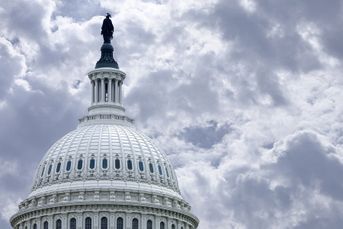Independent advisers are key to economic growth in their communities: Oxford Economics study
Political leaders can put themselves in a better position to understand Main Street's needs by developing stronger ties to independent financial services firms and advisers.
With America in the thick of election season, we hear one question asked repeatedly in regards to various candidates and policies: “Who is looking out for the middle class?” Political fortunes will rise and fall across the country this November as voters decide which candidates truly understand Main Street Americans’ economic concerns and which do not.
According to a comprehensive new study conducted by Oxford Economics on behalf of the Financial Services Institute (FSI), those candidates might do well to listen to the members of one industry in particular: the independent financial services industry.
The results of the study were announced for the first time at the inaugural FSI Forum in Dallas, which was developed to help independent financial advisers and firm executives prepare for implementation of the Department of Labor’s new fiduciary rule.
While Americans may not be as familiar with independent firms as they are with large wirehouses, they are very well acquainted with the advisers who represent the true face of the industry. As the study, “The Economic Impact of FSI’s Members,” makes clear, the majority of the 167,000 independent financial advisers affiliated with FSI member firms live and work predominantly in small and mid-sized towns in all 50 states, have strong ties to their communities and know their clients personally.
(More: Finra’s arbitration process: Challenging the system to find the right answers)
Beyond personal relationships, these advisers make up an invaluable component of the city and state economies in which they operate. By applying a standard technique called economic impact analysis to data gathered from across the industry, the Oxford Economics study quantifies for the first time the independent financial services sector’s vast contributions to GDP, jobs and tax revenue in communities across the country.
The findings were eye-opening, and should be required reading for legislators and regulators everywhere: The industry contributed $48 billion to GDP in 2015, along with $6.8 billion in taxes to federal, state and local governments.
The numbers go beyond employment generated directly by the industry. The study found that, for each of the 167,000 advisers mentioned above, an additional two jobs were supported in the broader economy. The total number of jobs supported both directly and indirectly by the independent financial services sector in 2015 came to over 482,000 nationwide.
Approximately $19.5 billion of the industry’s total contribution to 2015 GDP came in the form of supply chain and consumer spending activities, spreading the benefits generated by the sector to a wide range of other areas in the economy, including professional and business services ($4.8 billion); trade, transportation and utilities ($4.2 billion) and education and health services ($2.8 billion).
(More: Building bipartisan support for the Senior Safe Act)
Among the study’s other key findings were the following:
• FSI member firms’ and advisers’ impact is disproportionately large in small and mid-sized states, which are frequently underserved by other sectors of the financial services industry. The states in which FSI members generated the greatest share of economic activity relative to the financial services industry’s total contribution in that state include Mississippi (41.0%), Maine (36.4%) and Kansas (30.9%).
• While members made up a disproportionate share of economic activity in smaller states, they had a sizeable impact on the economies of larger states, as well. In California, the economic benefit from FSI member firms came to $5.4 billion in 2015; in New York, it was $4.3 billion; in Texas, $2.9 billion.
• Independent financial advisers tend to have a substantially different demographic profile than advisers elsewhere in the industry. They are more likely to have served their country in the military, with one in six being a veteran; they tend to live in the same communities in which they work; and they tend to be more highly educated than their counterparts elsewhere in the industry.
• FSI members also make substantial contributions to the economy in the form of millions of dollars in donations to national, regional and local charities; volunteering their time; and teaching financial literacy skills on a pro-bono basis.
The Oxford Economics study provides quantitative support for what members of our industry have always known: Independent financial advisers and firms have a unique understanding of Main Street Americans’ financial needs, anxieties and dreams because advisers in this industry are part of the Main Street community themselves.
As FSI’s executive vice president and general counsel David Bellaire puts it, “People in Washington, D.C., like to say that the plural of ‘anecdote’ is not ‘data.’ This study puts the relationship between our members and the communities they serve into a language that policymakers can easily understand and act on — hard data.”
Moreover, the study demonstrates that independent advisers not only counsel members of their communities on how to pursue their goals for education, retirement and other important aspirations — they are a key driver in the economic well-being of the cities and states in which they live and work themselves.
(More: Our legal challenge to the DOL: Making our voices heard in court)
As America’s middle class prepares to go to the polls this November, the ongoing economic anxiety of a sluggish and uneven recovery will be one of the deciding factors in the outcome of the election. As this new study from Oxford Economics makes clear, political leaders at every level — national, state and local — can put themselves in a better position to understand Main Street’s needs by developing stronger ties to independent financial services firms and advisers.
Dale Brown is president and chief executive of the Financial Services Institute Inc.
Learn more about reprints and licensing for this article.







